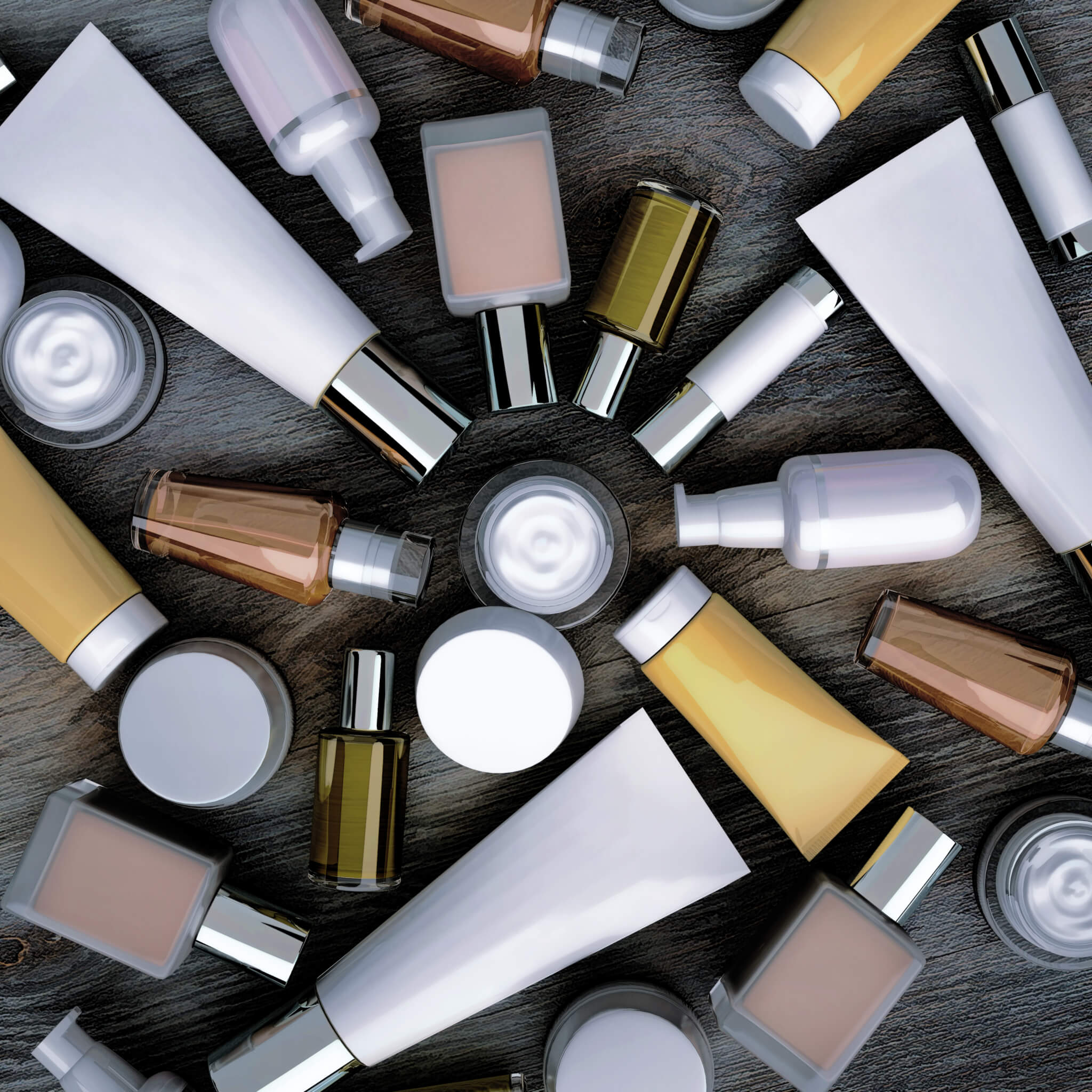Restricted Substances in Cosmetics
Certain substances are restricted or prohibited from being used in cosmetic and personal care products. Restricted substances analysis or Traces and Impurities testing is important to ensure that their presence ensures cosmetic safety, efficacy, quality and provides cosmetic compliance.
To assist ensure cosmetic compliance with regulation EU No1223/2009, QACS Labs conduct cosmetic testing & personal care testing services on Traces and Impurities under optimal scientific practices using state-of-the-art equipment. Among the substances that QACS is GMP accredited for are Heavy Metals, Impurities, Nitrosamines, Allergens, and Residual solvents. Traces and Impurities testing from QACS includes Heavy metal testing, Impurity testing, Nitrosamine testing, Allergen screening, Formaldehyde testing, Residual solvents testing, Preservatives testing, PAHs and Phthalates testing.
Substances or mixtures present in fragrances or cosmetic products from naturally derived ingredients, pose allergen risks. Allergic reactions such as contact dermatitis can induce skin sensitization. At QACS, we perform Allergen Testing for cosmetics and personal care products. Method of analysis stays in line with the existing regulatory framework of EC Reg 1223/2009, SCCS 1459, ‘2012 Opinion’ and European Legislation EU 2023/1545.
N-nitrosamine Detection and Quantification for cosmetic and personal care products are provided.
Nitrosamines formation in cosmetics derives from the reaction between amines and amino derivatives in the presence of nitrosating agents forming harmful and possible carcinogenic substances such as NDELA (N-nitrosodiethanolamine). The European limit of 50 ppb for nitrosamines should apply to raw materials as well as to finished products containing Nitrosamines. N-nitrosamine impurities in cosmetics might be found in products like hair dyes, nail varnishes etc.
- Arsenic (As)
- Lead (Pb)
- Chromium (Cr)
- Cadmium (Cd)
- Cobalt (Co)
- Nickel (Ni)
- Phthalates testing
Αdditives to increase the flexibility of plastic, often found in cosmetic and personal care products. Packaging Testing services for cosmetics are provided, to detect chemicals (plasticizers) used in products. Safely support product claims by proceeding to Packaging compatibility for cosmetic and personal care products.
- 1,4-Dioxane analysis
Synthetic industrial chemical categorized as probable human carcinogen, byproduct of the manufacturing process of certain cosmetic ingredients (detergents, foaming agents, emulsifiers and solvents). We perform Dioxane testing to meet regulatory needs.
- Acrylamide
Acrylamide detection in personal care products
- Furocoumarins
Furocoumarins detection in personal care & cosmetic products
- Formaldehyde
Formaldehyde can be found in shampoos, hair gel, eyelash glue, hair smoothing products, liquid baby soaps and more. At QACS we perform Formaldehyde testing for cosmetics.
- PAH’s testing -Polycyclic Aromatic Hydrocarbons
- BTEX, Benzene, Toluene, Ethylbenzene, Xylene
- EP Class 1, 2, 3 -benzene, carbon tetrachloride, dichloroethanes (ethylene chlorides), e.g. 1,2-dichloroethane, 1,1,2-trichloroethane and others
- Annex IV -contains the list of colorants allowed in cosmetic products
- Annex V -contains the list of preservatives allowed in cosmetic products
- Annex VI -contains the list of UV-filters allowed in cosmetic products
Annex II contains the list of prohibited substances, including:
- Heavy metals in traces: arsenic (As), lead (Pb), chromium (Cr), cadmium (Cd), cobalt (Co), nickel (Ni)
- Impurities of residual solvents (Class1): benzene, carbon tetrachloride, dichloroethanes (ethylene chlorides), e.g. 1,2-dichloroethane, 1,1,2-trichloroethane 1.4, dioxane
Allowed substances are listed in Annexes IV, V and VI of Regulation (EC) No 1223/2009.
Colorants – Preservatives – UV filters
QACS performs Abrasion scrub tests to evaluate Cleaning Performance of cleaning products. Testing is performed according to accepted industry standards and supports claims substantiation.
We perform
- Testing Cleaning Performance of Products Intended for Use on Resilient Flooring and Washable Walls (ASTM D4488)
- Evaluating Cleaning Performance of Ceramic Tile Cleaners (modified ASTM D5343)
- HCPA DCC-17 – Tough Greasy Kitchen Soil Test Method
- HCPA DCC-16 – HCPA DCC-16 Lime Soap Removal
We perform Abrasion scrub tests for Ecolabel candidate products along with the reference product. Ecolabel Performance tests are performed on ready-to-use dissolved or diluted products.
Products to be tested include:
- Glass Cleaner
- Ready-to-use Sanitary Cleaner
- Ready-to-use Toiler Cleaner
- Multipurpose Cleaner
- Kitchen Degreaser
- Hand Dish Detergent
SLES free testing analysis from QACS, is performed using HPLC-ELSD determination. SLES free analysis assists product manufacturers to better support product claims by producing eco-friendlier products and premium products.
SLES testing can be performed for cosmetics, detergents and biocides.
Our experienced scientists determine the best and most cost-efficient test to achieve cosmetic regulatory compliance for your products. If you are based in the EU, we offer 24-hour courier service. Contact us – [email protected] – +30 210 29 34745

